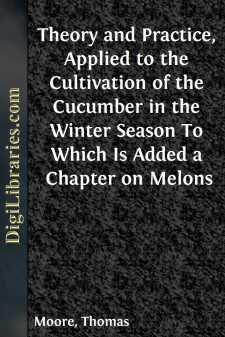Fiction
- Action & Adventure 180
- Biographical 15
- Christian 59
- Classics
- Coming of Age 5
- Contemporary Women 3
- Erotica 8
- Espionage/Intrigue 12
- Fairy Tales, Folklore & Mythology 236
- Family Life 169
- Fantasy 117
- Gay 1
- General 596
- Ghost 32
- Historical 808
- Horror 43
- Humorous 160
- Jewish 25
- Legal 4
- Medical 22
- Mystery & Detective 315
- Political 49
- Psychological 41
- Religious 64
- Romance 159
- Sagas 11
- Science Fiction 730
- Sea Stories 113
- Short Stories (single author) 537
- Sports 10
- Suspense 1
- Technological 8
- Thrillers 2
- Urban Life 31
- Visionary & Metaphysical 1
- War & Military 173
- Westerns 199
Classics Books
Sort by:
by:
Anonymous
CHAPTER I. GOTTFRIED AND ERARD—PURSUIT OF A HORSEMAN—RESCUE OF THE WOUNDED CHEVALIER In the long and bloody war which followed the martyrdom of John Huss and Jerome of Prague, two hostile armies met, in 1423, in one of the most beautiful valleys of Bohemia. The battle commenced towards the close of day, and continued until after sunset. It was then that old Gottfried, accompanied by Erard, his...
more...
by:
Theocritus
IDYLL I. The Death of Daphnis.THYRSIS. A GOATHERD. THYRSIS. Sweet are the whispers of yon pine that makes Low music o'er the spring, and, Goatherd, sweet Thy piping; second thou to Pan alone. Is his the horned ram? then thine the goat. Is his the goat? to thee shall fall the kid; And toothsome is the flesh of unmilked kids. GOATHERD. Shepherd, thy lay is as the noise of streams Falling and falling...
more...
ON CHRISTIANITY, AS AN ORGAN OF POLITICAL MOVEMENT. [1846.] FORCES, which are illimitable in their compass of effect, are often, for the same reason, obscure and untraceable in the steps of their movement. Growth, for instance, animal or vegetable, what eye can arrest its eternal increments? The hour-hand of a watch, who can detect the separate fluxions of its advance? Judging by the past, and the...
more...
by:
Thomas Moore
Chap. I. INTRODUCTORY REMARKS. The Cucumber, Cucumis sativa, is supposed to be a native of the East Indies; but like many other of our culinary plants, the real stations which it naturally has occupied, are involved in obscurity: in habit it is a trailing herb, with thick fleshy stems, broadly palmate leaves, and yellow axillary monæcious flowers. In the natural arrangement of the vegetable kingdom,...
more...
by:
George MacDonald
CHAPTER I. FATHER, CHILD, AND NURSE. It would be but stirring a muddy pool to inquire—not what motives induced, but what forces compelled sir Wilton Lestrange to marry a woman nobody knew. It is enough to say that these forces were mainly ignoble, as manifested by their intermittent character and final cessation. The mésalliance occasioned not a little surprise, and quite as much annoyance, among...
more...
Strindberg was fifty years old when he wrote "There Are Crimes and Crimes." In the same year, 1899, he produced three of his finest historical dramas: "The Saga of the Folkungs," "Gustavus Vasa," and "Eric XIV." Just before, he had finished "Advent," which he described as "A Mystery," and which was published together with "There Are Crimes and...
more...
by:
Gilbert Parker
I "YORK FACTORY, HUDSON'S BAY,"23rd September, 1747. "MY DEAR COUSIN FANNY,—It was a year last April Fool's Day, I left you on the sands there at Mablethorpe, no more than a stone's throw from the Book-in-Hand Inn, swearing that you should never see me or hear from me again. You remember how we saw the coast-guards flash their lights here and there, as they searched the...
more...
by:
Norma Lorimer
CHAPTER I Dawn held the world in stillness. In the vast stretches of barren hills and soft sands there was nothing living or stirring but the figure of an Englishman, standing at the door of his tent. At the hour of sunrise and sunset the East is its own. Every suggestion of Western influence and foreign invasion is wiped out. The going and the coming of the sun throws the land of the Pharaohs, the...
more...
A Peep at Tolcarne. “Ed—Ward!” “Yes, mum.” A stiff, high-shouldered footman turned round as he reached the breakfast-room door. “Are you sure Sir Hampton has been called?” “Yes, mum.” “And did Smith take up her ladyship’s hot water?” “Yes, mum.” “Are the young ladies coming down?” “They went out for a walk nearly an hour ago, mum.” “Dear me! and such a damp...
more...
PREFACE This volume, "Therese Raquin," was Zola's third book, but it was the one that first gave him notoriety, and made him somebody, as the saying goes. While still a clerk at Hachette's at eight pounds a month, engaged in checking and perusing advertisements and press notices, he had already in 1864 published the first series of "Les Contes a Ninon"—a reprint of short...
more...











